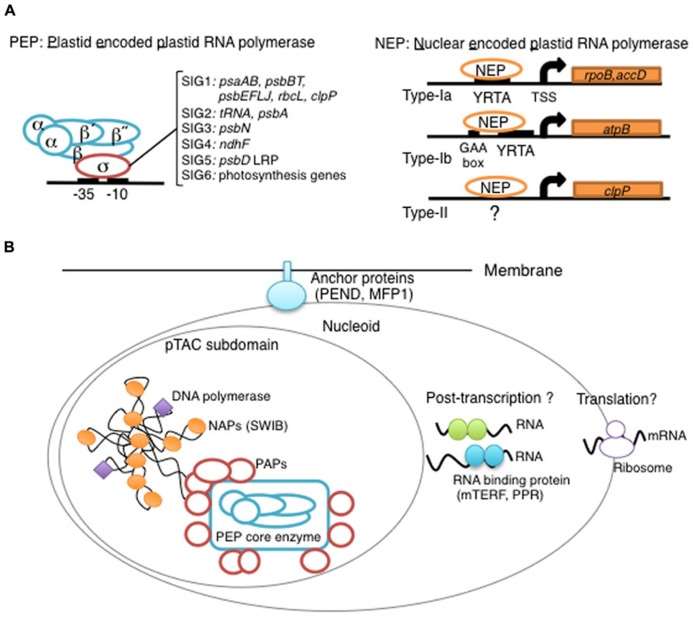Plant chloroplasts diverged from preplastids and are evolutionarily derived from endosymbiotic bacteria. As a result, chloroplasts retain many of the characteristics of prokaryotic cells, such as multiple cis-trans, gene transcription, and protein translation, all of which are similar to those of bacteria. However, over millions of years of evolution, most of the chloroplast genes have been transferred to the nuclear genome, which retains three main categories of functional genes; photosynthesis, expression regulation, and biosynthesis. Plant genetic engineering techniques have received increasing attention to enable the use of plant chloroplasts as bioreactors for synthesizing exogenous proteins.
 Figure 1. Overview diagram of chloroplast transcription. (Yagi, Y.; Shiina, T. 2017)
Figure 1. Overview diagram of chloroplast transcription. (Yagi, Y.; Shiina, T. 2017)
Lifeasible has been working in the field of plant genetic engineering technology for many years, and we have considerable success in using plant chloroplasts as bioreactors for biopharmaceuticals, expression of pharmaceutical proteins, and vaccine biosynthesis. We are confident that we can provide you with the right solution to enable the expression of your target exogenous protein in plant chloroplasts.
We first construct the homologous recombinant fragment, the expression cassette of the selection marker gene, the expression cassette of the exogenous target gene, and its promoter and terminator into the same expression vector. After constructing the expression vector, the vector is introduced into the chloroplast using an efficient transformation method. After homologous recombination, the exogenous gene is expressed as the chloroplast genome is replicated and inherited.
Currently, the genetic transformation of chloroplasts is generally carried out by introducing transgenes into the chloroplast genome by the gene gun method, glass bead transformation, electroshock transformation, or PEG-mediated transformation. In addition, we can use lipid exchange membrane permeation (LEP) technology to transport genes into the chloroplasts of plant cells without external forces with the aid of nanoparticles to transport DNA.

With outstanding experts and abundant plant genetic engineering technologies, Lifeasible provides customers in the field of biosynthesis with solutions for expressing exogenous proteins using plant chloroplasts. We sincerely look forward to cooperating with you; please feel free to contact us if you have any questions.
Reference